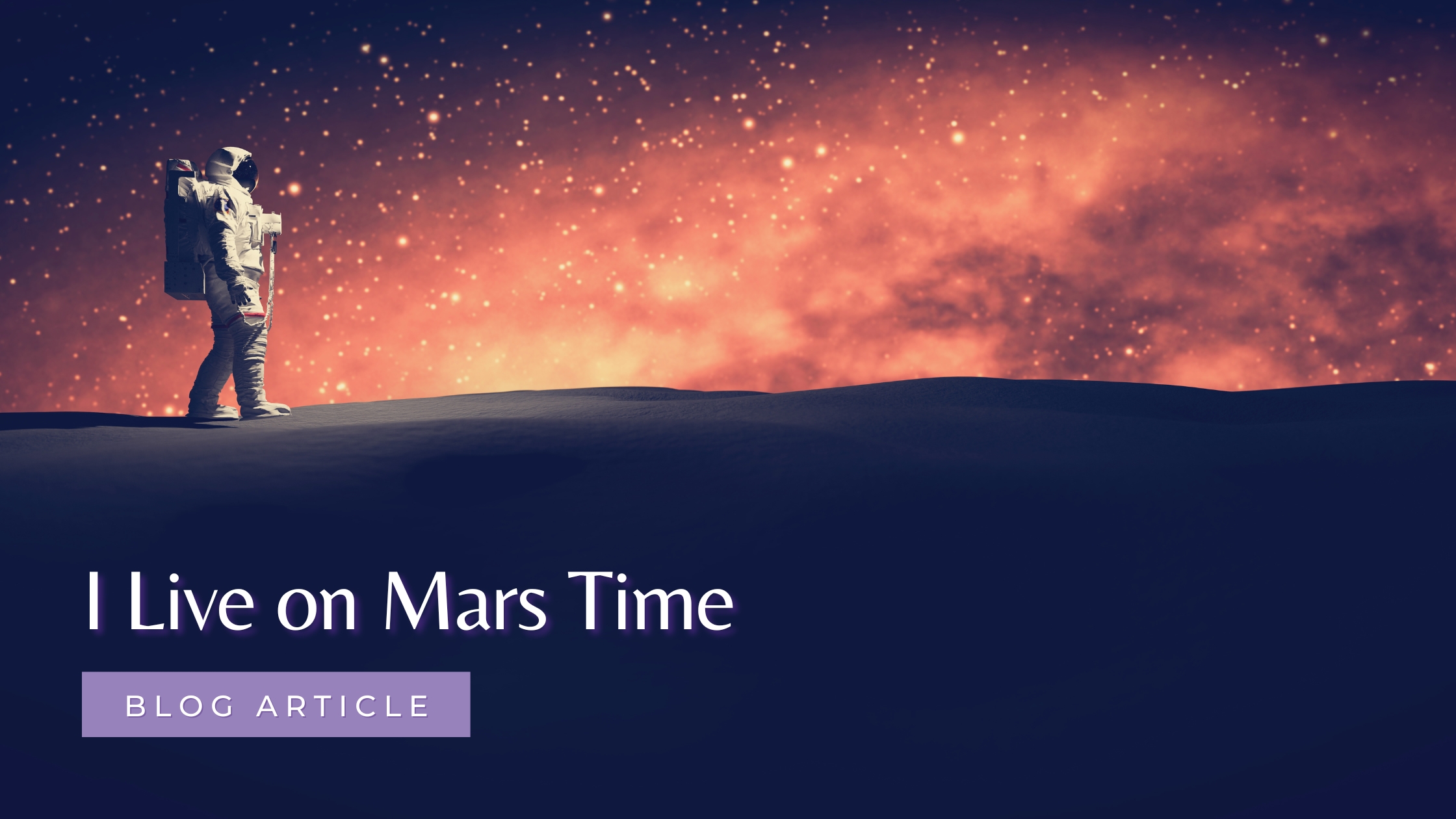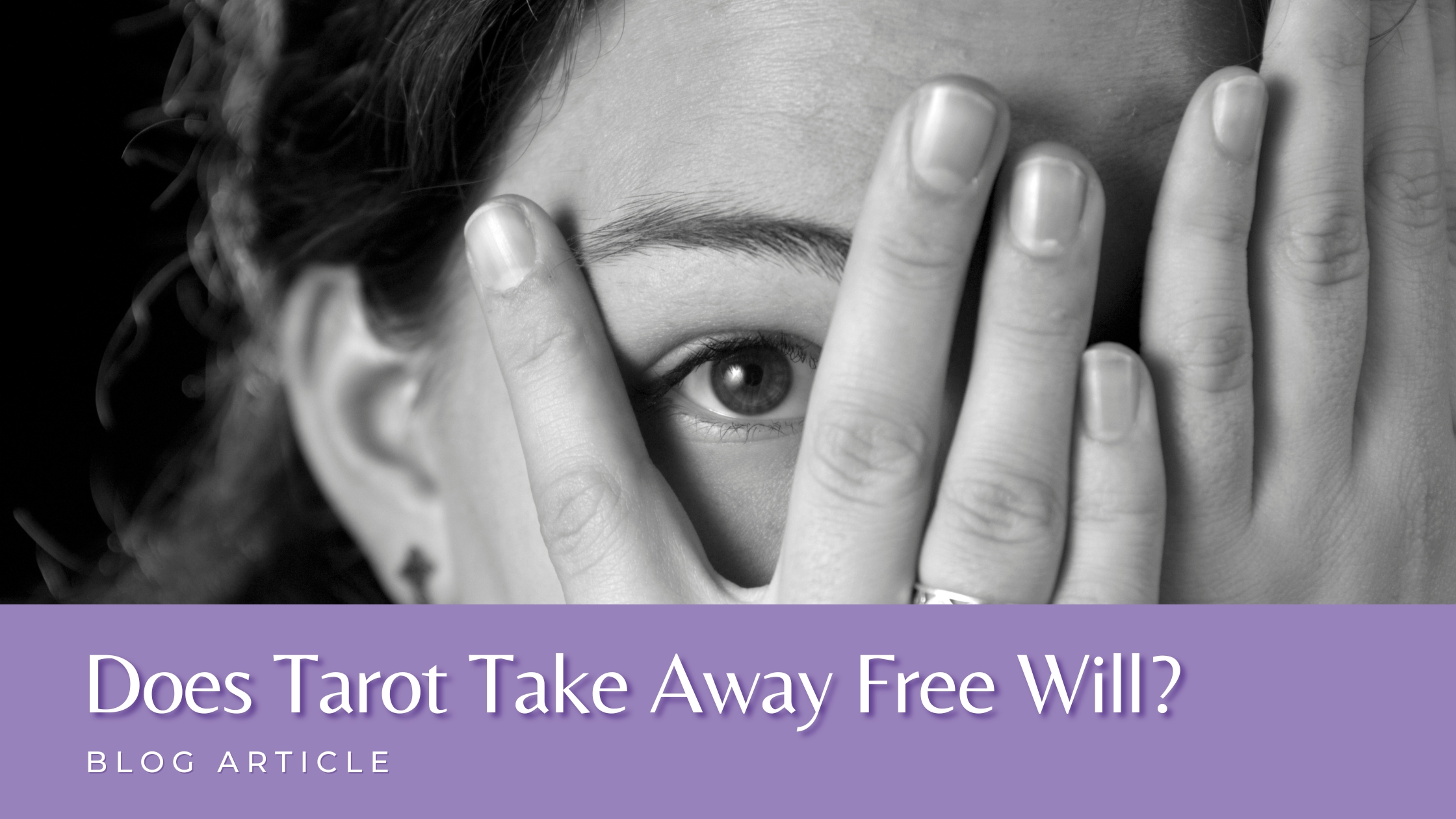I Live on Mars Time
If you work on the NASA Mars rover project, you spend three months living a 24.6-hour day. That’s because the Martian day is longer than Earth’s. Could you imagine waking up a half-hour later each morning? Within a few weeks, you’d have gone from day shift to night shift and then back again.
It would be exhausting.
Aligning to that schedule helps mission efficiency, but it’s so disruptive to the health and sanity of employees that they’re only asked to do it for a few months at a time.
I’ve been doing it for eleven.
This isn’t a brag. I don’t work for NASA (but they should probably give me a call).
Instead, I have a rare and debilitating sleep disorder called Non-24.
When I Was Still an Earthling
I didn’t always have Non-24. On Thanksgiving of 2017, I got into a car on the way to my brother’s house. But I wasn’t careful, and I bounced up and hit the roof of the car with my head. Hard.
Right away I knew something was wrong, but it seemed ridiculous that I could be affected by such a small accident.
I blacked out for a few seconds and felt an indescribable pit of rage well up inside of me. But I didn’t want to bother my family as we drove to our destination. I looked wistfully at the hospital we passed on the way there.
Later I realized I had a concussion. The basic treatment protocol is rest and that’s exactly what I did. Unfortunately, I soon developed post-concussion syndrome and slept at random hours of the day for the next eight months.
Everything about my life was difficult. On the day of my concussion, I had just spent three hours studying Korean. But afterward, I had forgotten most of what I learned and could never sustain that level of concentration or interest in foreign languages again.
At the time, I was in the middle of graduate school trying to become an English teacher. My native language abilities were also compromised, and I would spend hours pouring over my lessons for any typo (and there were many). According to Grammarly, I had an accuracy rate of 59% compared to my standard 90%.
And I was being judged for every typo to a degree I had never been judged before.
Yikes.
Some days, I would leave school and puke. Usually, I’d get home first, but I had gotten into the habit of carrying plastic bags around with me so I could vomit on the side of the road if needed.
Eventually, the worst subsided. Or so I thought.
Getting Off the Rocket Ship of Sleep
My graduate school was online, so it provided a lot of opportunities for me to rest. My clinicals were more difficult to withstand but were only for six-week stints. I felt sick all the time — and I ignored it.
After all, many student teachers consider the experience one of the worst of their lives. We’re even warned that we’re going to feel this way. My misery was supposed to be normal.
But I was wrong.
After graduating in December, I spent that spring and the next year subbing in local schools. Yet try as I might, I couldn’t get my sleep schedule back to normal. I thought I was lazy. I was a seemingly healthy twenty-eight-year-old after all, so I pressed on.
Each day of work required at least a day to recover. Then two. Then a week. And then…
I crashed in February of 2020.
Maybe it was COVID, but I was never diagnosed. All I know is that my body had been breaking down for some time and eventually I couldn’t handle it anymore.
I spent the next few months in a delirium with a mysterious illness.
Sleep deprivation is a severe health risk when it goes untreated. Up until that point, I had found myself lying awake in the darkness for eight hours a night. Then I’d get up with the sun and wait until I was so tired that I collapsed on my bed. Sometimes I’d go a day or two without sleep.
It was infuriating because I had always had the same night routine: shower, listen to music, and go to bed. I had sleep hygiene down and I had it down all my life. What else could I do?
I was trying everything I could not to be lazy.
But I wasn’t lazy.
I had a real problem.
My Freight Train of Sleep
I tried everything to reset my sleep schedule. I turned back my alarm clock by thirty minutes. Then fifteen minutes. Then a minute. Nothing worked. I went outside as soon as I woke up. I even took melatonin (but this gave me suicidal ideation and no restful sleep).
When nothing else worked, I turned to the internet and learned about Delayed Sleep Phase Disorder. It’s similar to what I have in that it’s also affects the circadian rhythm. You may also know it as being a night owl. Inconvenient, sure, but something one can live with.
So I tried to reorient my life around being a night owl and allowed myself to go to bed when I was tired and wake up when I was rested.
And that’s when things got weird.
I assumed that my sleep would even out and I would wake up in the late morning or afternoon. But my wake times just kept getting later and later.
This made no sense, so I did some more research. And that’s when I learned about Non-24-Hour Sleep-Wake-Disorder. Almost every cell in your body has a clock and it’s managed by the Suprachiasmatic Nucleus (SCN) within the hypothalamus of the brain. Everyone has a natural 24.2 hour or so biological time, but the SCN helps reset it using environmental cues.
But in people like me, the SCN can’t reset the master clock and release the hormones needed to help one fall asleep on time. Most people with Non-24 are blind, though sighted people can develop Non-24 because of genetics, trying to correct another sleep disorder (usually DPSD), or a head injury.
It’s unknown how many sighted people with Non-24 exist. Perhaps there are tens of thousands in the world, but it may be as little as a few thousand. There’s not a lot of information out there about it.
If this sleep disorder goes unaddressed, then it can have potentially fatal consequences such as heart disease, diabetes, and even cancer.
Somehow, being lazier seems like it would’ve been easier to deal with.
A Lifetime Ticket to Mars
When I realized I probably had Non-24, my heart sank. The more I read about the sleep disorder, the more I realized what it would mean.
Nothing would ever be normal again.
I took months of sleep data to a specialist and was diagnosed. Non-24’s defining trait, its clock, isn’t replicated in other disorders. A diagnosis is rather straightforward if your doctor is even aware it exists, but even sleep specialists often aren’t.
While it was comforting to know I wasn’t lazy and had a real and disabling sleep disorder, there was nothing else left to be done.
Non-24 has no treatment or cure. Some can temporarily reset their body back to a schedule with melatonin or HOURS of light therapy per day, but this is difficult and requires perfect sleep hygiene with no mistakes.
My doctor did suggest that I could join a university study five hours away. There’s also a medication that works for some people sometimes, but it costs $24,000 a month.
No thanks. I didn’t want to be a lab rat or on medication that’s been barely tested.
Unsurprisingly, nobody with Non-24 can keep up with the heinous and paltry treatment options. Therefore, it’s recommended to alter your lifestyle to account for your Non-24 day.
That’s not easy. My social life needs improvement. I also can’t hold down a traditional job and any job which requires meetings is impossible. Scheduling appointments? A nightmare.
I can’t push my sleep forward or back since my biological clock can never reset or I’ll be jet-lagged all the time. I’m stuck with what I’ve got.
Forever.
How I Live Now
But despite how maddening my sleep disorder is, life has never been better.
Seriously.
For the first time in years, I feel like I have full control of my mental awareness. I also started a tarot business and my future is brighter than it ever was before.
When I got my diagnosis all those months ago, something in me snapped. I didn’t want to accept that I’d have no control over my life going forward. I didn’t want to be a lab experiment. And I didn’t want to depend on the government for disability benefits.
I was tired of being a victim.
Instead, I got to work. It wasn’t easy because of the insanity that is a Non-24 sleep schedule, and I have to be pretty inventive with my productivity and work projects, but I did it.
It has been so good for my self-confidence and personal worth that I’m the person I always wanted to be.
Now I’m learning how to enjoy living on my own personal Mars.
Did you like this? Let me know! And don’t forget to subscribe to my newsletter to receive e-mails when new articles and tarot pick a cards are published. If you really liked this article, you can also tip me on Ko-fi.







Thank you So Much for sharing your story Emmarie! I can relate to alot of what you’re going thru, due to my own genetic medical conditions. I know you’re proud of yourSelf, but let me just say; Bravo for your persistence, control & positive attitude! & Thanks for making a safe space for others to come, get some grounded, practical, useful advice👍🏻❤️
Thank you for such kind words and I hope to help others relate with future articles about my experience. 🙂